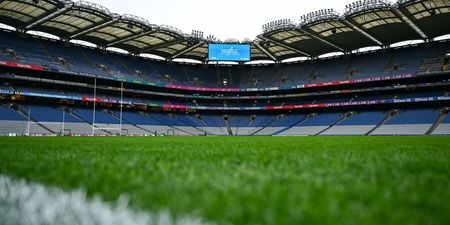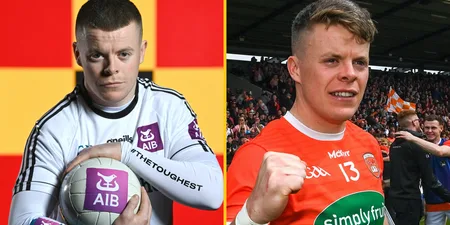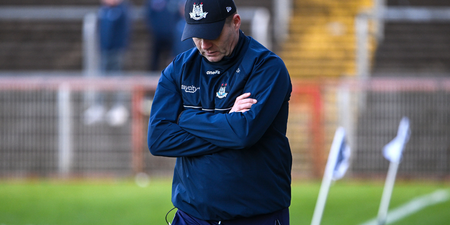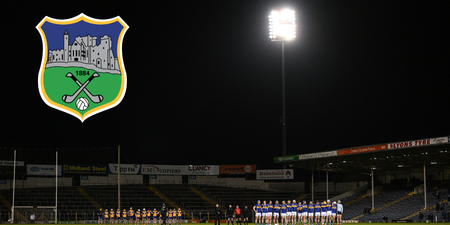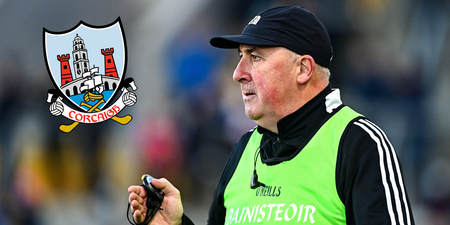Championship is Championship
How often do you hear that phrase trotted out after a team has been heavily beaten in a league game or a challenge match just weeks before the provincial series begin?
Sports psychology consultant Emmett Hughes tells us if it’s really true that there is a definable ‘Championship mentality’ among GAA players.
***
I think it’s probably foolish to assume that players, especially in the GAA don’t regard games played in peak summer more highly than spring or winter action.
The league is spent playing games and going through heavy sessions in order to physically peak later in the season. Tactically you’re concentrating on getting systems right for later in the year and managers are also looking at trying to get their players to focus as well as on a certain game,an opponent,a certain competition.
We hear managers like Dublin’s Jim Gavin often say that they treat every game the same, and that psychologically, is the golden template. Getting players to approach and train in the same way for every match should at least in theory mean that the level of performance in the game will be the same each time.
That’s the challenge of managing the group and managing the culture in a way that the attitude and focus is exactly the same every time.
Everyone can work towards that and aspire to it, but it’s a fact that the big game mentality comes into it and it is understandable that players are a little more attentive to bigger games. Managers need to taper their training and that’s the difference between success and failure a lot of the time.
Managers need to know their players and know exactly how to balance the demands they place on them and the importance they attach to games.
I think in an ideal scenario you have to set your goals as early as possible. Talk to 99% teams of teams and they will identify their ambition as winning something. That’s fine if you’re talking about wishes but in terms of focus it”s not really fit for purpose.
It’s crucial that the process is correct when setting goals and you get as close to a specific as possible. For example if you’re a midfielder then you could be told that your goal for the next three games is to win 60% of the kick outs. Specify the role of each and every player in the team and try and get clarity on that.
If you get that then when you build up during league to championship you get perspective and you can supplement the result or the outcome with statistical analysis. From a mental perspective you can praise the player,tell them they’re going the right way or show them that there needs to be more improvement. That leads to more confidence and as a season goes on it all adds up to additional motivation for the ultimate goal of the team.
I think club players suffers the most in terms of trying to change their mentality to suit the time of year. They focus and train early on for games in the Spring,then there’s a break and then you get back to focusing again for the autumn time.
The GAA is not unique in its ‘championship mentality’ as such because individual athletes mange to peak for certain events too during their season on a regualr basis, and they might be something to aspire to
It is certainly a different challenge to what Premier League players face where it’s steadily built up as the year goes on.
Goal setting might be the start but in individual events players need to be aware of the routine and their psychological preparation so they can play the best they can.
Physically there can be signs of the different approach as well. You can talk about things like focus,intensity,even aggression.
If you want to get detailed on it body language is usually thre best example of someone who is clearly in the ‘championship mentality’ in the summer.
In some,but not all,there is a clear definition in the body language in how a player reacts and responds to events in a game during a league clash and that of a championship game.
It manifests itself in much more assertiveness,much more confrontation and generally speaking you can read a lot into that. That’s especially true for teammates or a coach. They are good indications of good body language if you’re getting ready for championship.
In my experience the way teams prepare across all sports the majority of teams can get better at puutting more importance on preparation and putting more pressure on training. Management then can try and reduce the pressure around a big game or a big event.
If you can align the preparation and performance closer together in terms of the perception of pressure you’re giving players a better chance to deal with the pressure and perhaps disappointment as well. It also gives them confidence to approach the game in the right frame of mind
The biggest thing for teams that will lose their opening game this weekend is to have a number of options open to them to try and address the immediate disappointment.
Teams who stick by the process that got them to where they are need to stay with it. Even when you lose you can still gain something to bring with you to the next game if they reflect in the right way.
If the team is heavily focused on the outcome then the natural drop-off after the game is going to be severe but you can still use that.
If a team like that does lose then it probably means they have a big-game mentality and there is no greater challenge or opportunity and they will enjoy nothing more than being left in absolute knock out with their backs to the wall.
Management and players then just have to hope that there is a serious response to that.
Sometimes the result is out of your control and you have no idea about the weather,the referee or maybe injuries. If you do get beaten you can’t waste energy thinking too much about it.
Teams will set themselves up different ways and that’s a different mentality again.
You can contact Emmett on Twitter






